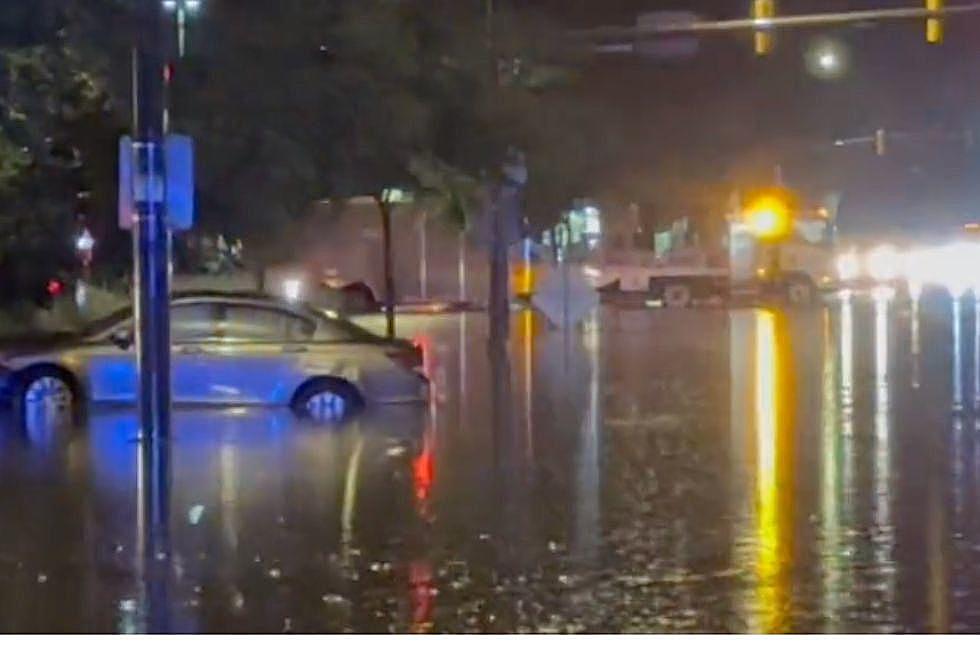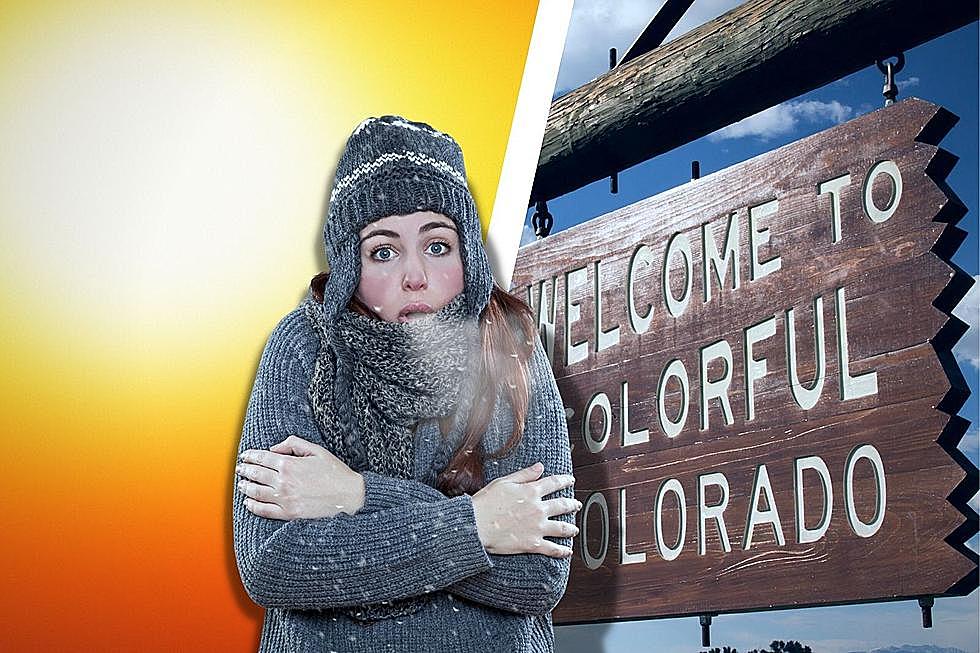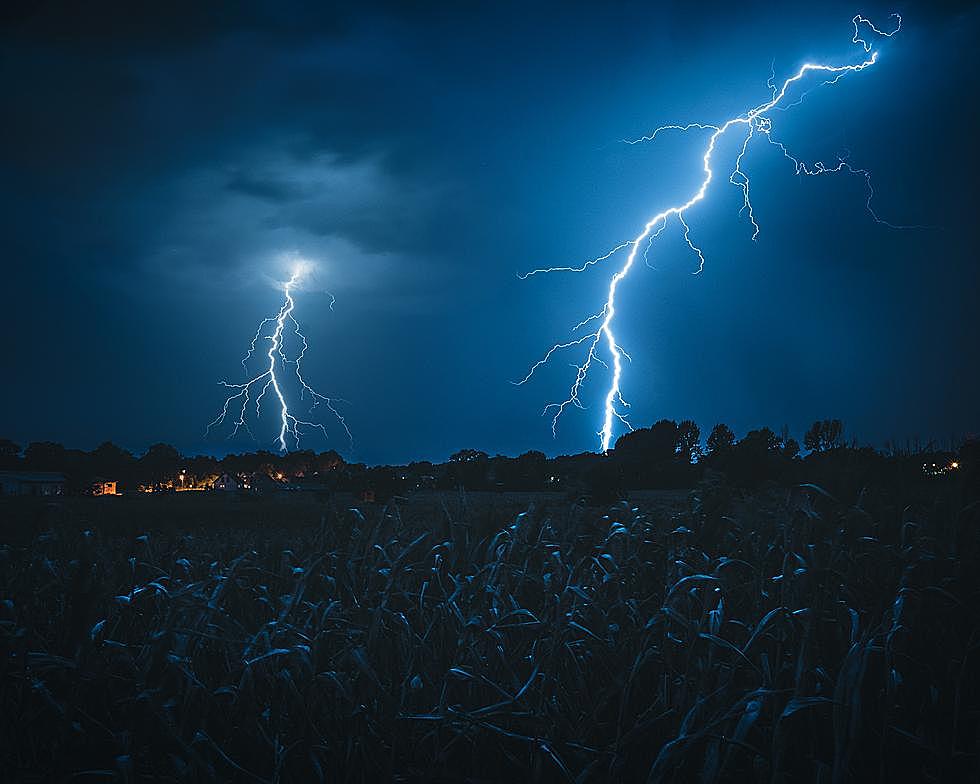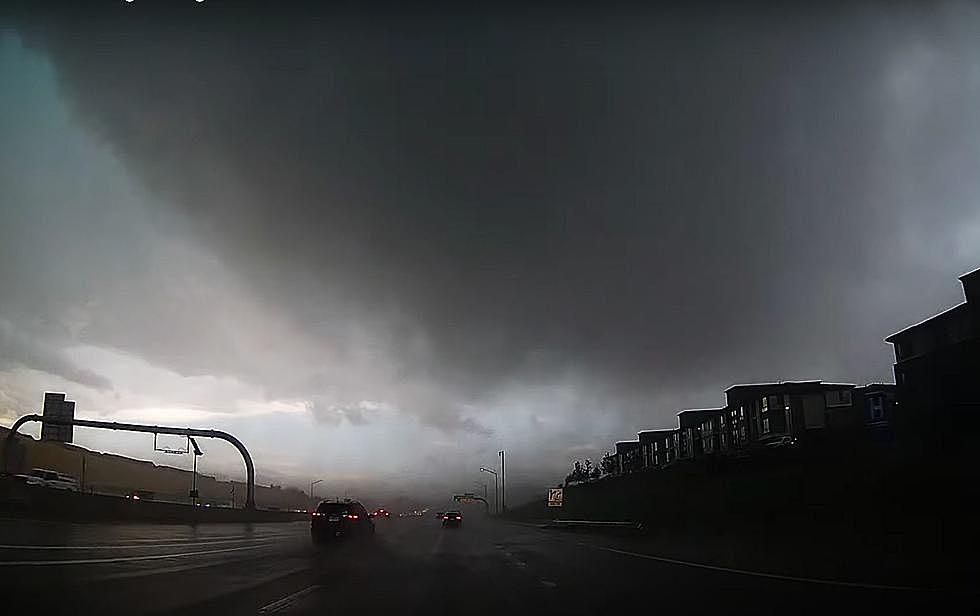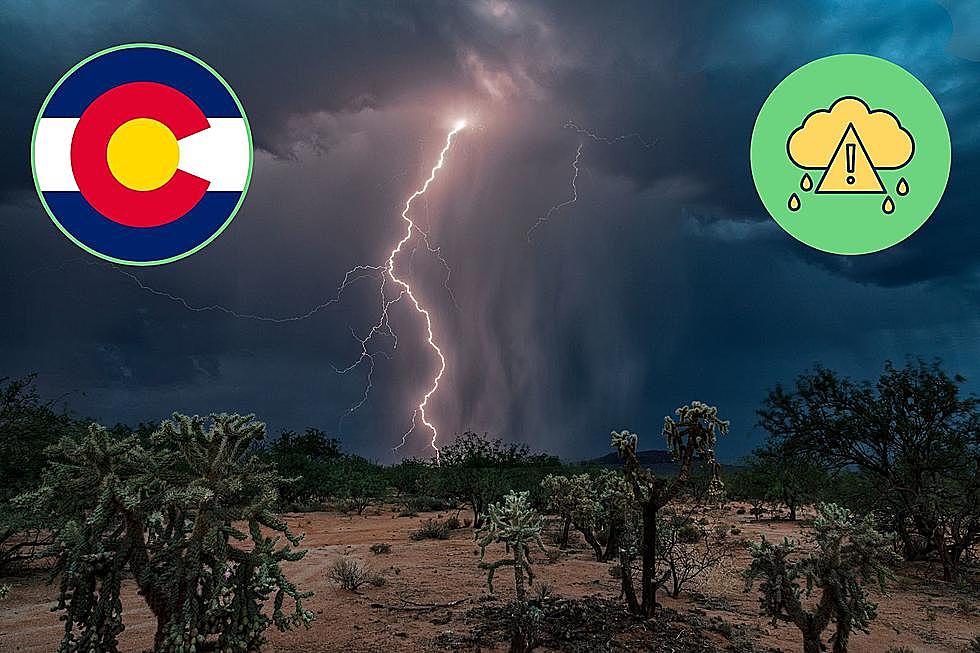
Colorado is Bracing for a Wet Monsoon Season But It’s Bone Dry
In Colorado, we tend to think of Monsoon Season as that part of summer when we can expect thunderstorms on a daily basis. Does Colorado really experience a "Monsoon Season," and if so, when, for how long, and how big of an impact does it have on the state?
Some weather services have already posted their predictions for July 2023. The Farmer's Almanac has gone on record with expectations of "Sizzling Temperatures." On the other hand, the Farmer's Almanac predicts it may be a wet summer featuring "showery rains and big thunderstorms."
Is Monsoon The Proper Term?
To my mind, a monsoon is a summer wind in southeast Asia that brings with it a ton of rain. Does the term really apply to Colorado? According to National Geographic, a monsoon is "... a seasonal change in the direction of the prevailing, or strongest, winds of a region."
Monsoon Season In Colorado
Yesterday, May 29th, 2023, while lugging five-gallon buckets of water to various trees and shrubs around my property, I found myself praying for the arrival of monsoon season. Granted, it would be easy to simply install a drip system and be done with it, but that hasn't happened yet.
According to Colorado State University, "The North American Monsoon (or NAM) is a shift in the wind pattern that allows for continuous moisture to flow from the Gulf of California into the normally arid southwest region of the country." The site adds, "This usually happens when a strategically centered high pressure and low pressure settle in over the region."
Months With the Most Precipitation In Colorado
In southwest Colorado, the effects of the North American Monsoon are obvious, with the highest precipitation months being July, August, and September. If you look at the Denver area, though, the effects of Colorado's monsoon season aren't quite so clear. For the Denver region, the highest precipitation month is in the late spring. But, according to Colorado State University, a secondary peak pops up around the time of the NAM.
For those in northeast Colorado, In the third example, the effects of the NAM are not evident. For this region, peak precipitation occurs in the early summer and dissipates after that.
Can We Mark This On Our Calendar?
In Colorado, it will either rain or it won't. Then again, it may snow, or it may not. Predicting the weather in Colorado is kind of like taking a monkey, putting a blindfold on it, taking it into a room and spinning the monkey around about a dozen times, and then having it throw darts at a dartboard. Sooner or later the monkey is bound to hit something.
If you do want to mark the date on your calendar, though, the Coloradoan reports the first official day of the North American Monsoon Season is June 15.
Scroll Through Colorado's Worst Tornadoes Ever Recorded
More From Ultimate Weather
